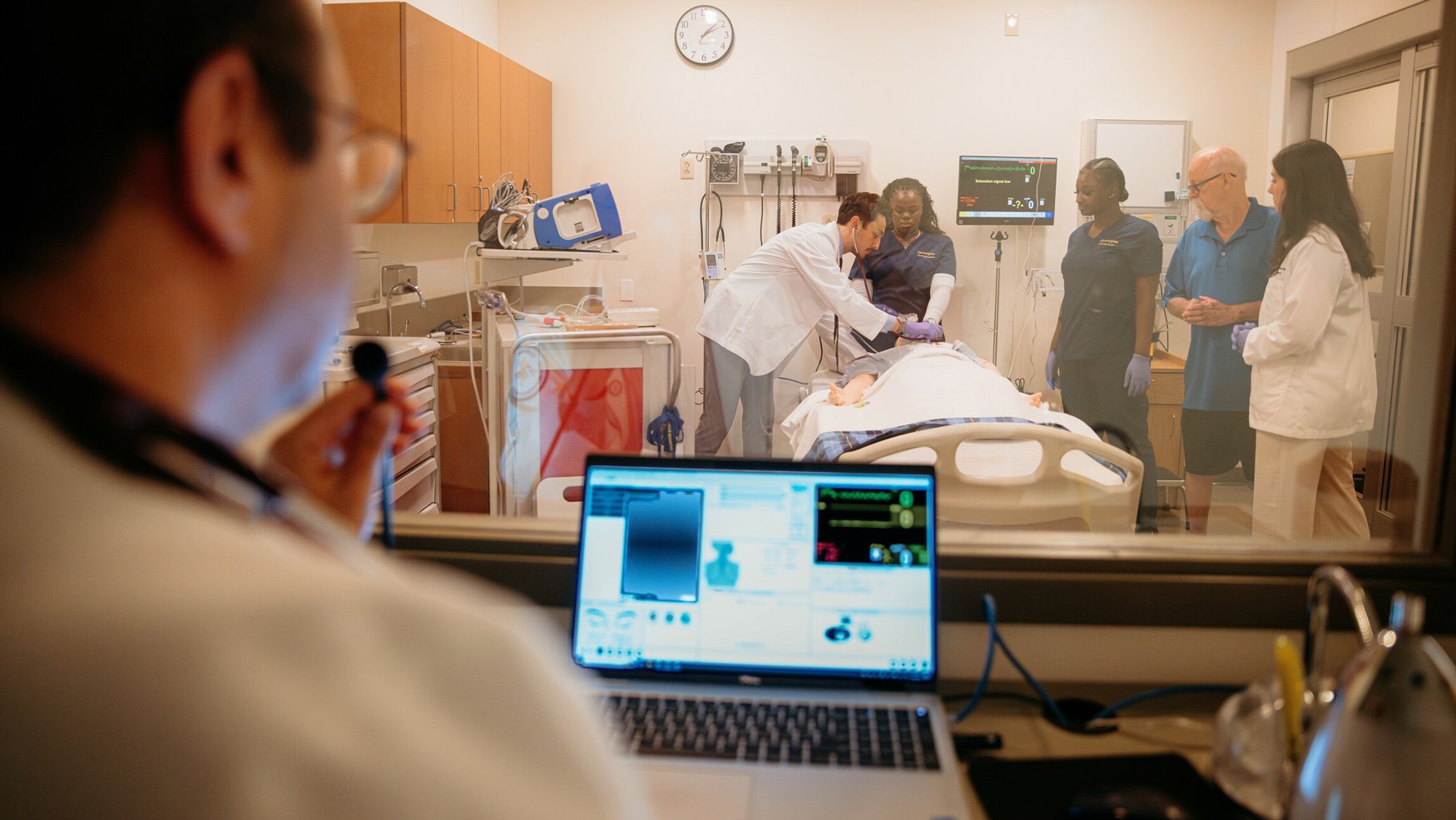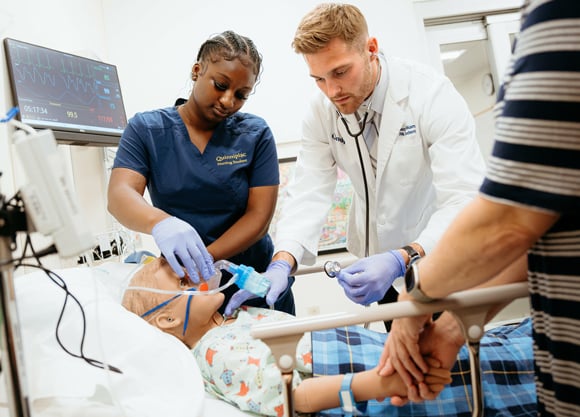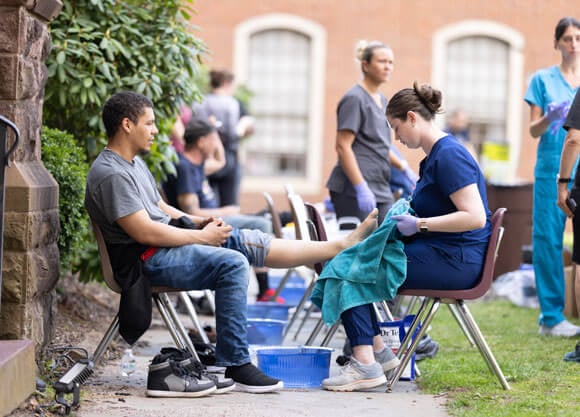
Learning that emphasizes real-world experience
Mission
Teach and empower future healthcare professionals through transformative interprofessional learning experiences that promote collaboration, person-centered care, and the application of the IPEC core competencies. We cultivate and measure innovative educational and practice programs that engage the Quinnipiac community and our regional and global partners in advancing the quintuple aim and achieving positive outcomes for all individuals and communities we serve.
Vision
The Center for Interprofessional Healthcare Education at QU aspires to continue to be a nationally recognized leader in advancing interprofessional education and collaborative practice. Through innovative learning and strong partnerships with other academic institutions, healthcare systems and communities, we prepare graduates to lead transformative change in healthcare. By applying the IPEC core competencies and working across disciplines, they improve health outcomes and advance the goals of the quintuple aim.
Our nationally recognized Center utilizes content experts and experienced interprofessional faculty to deliver high-quality educational experiences to students. The Center received the 2020 ASAHP Award for Institutional Excellence and Innovation in Interprofessional Education and Collaborative Health Care Program of Merit. The Center has also sparked many regional and national presentations and publications.
The resources offered by the Center are second to none. Case studies, seminars and simulations are designed by our interprofessional teams of faculty and students. We’ve created these resources to reflect the environments and situations encountered in the real healthcare world, ensuring that our students’ education remains completely relevant to the challenges that they will ultimately face. Whether working on simulated patients together or treating actual patients — in one of our clinics or with a community partner — students gain a multidisciplinary perspective on best practices and ethics, enhance each other’s clinical skills and make a positive difference in people’s lives.
What Is Interprofessional Education?
Interprofessional education is the occasion where learners of two or more professions learn with, from and about each other to improve collaboration and the quality of care and services.
Educational opportunities from the Center for Interprofessional Education revolve around the quintuple aim of healthcare:
-
improve the patient experience of care
-
improve the health of populations
-
reduce the per capita cost of healthcare
-
improve the work life of healthcare providers
-
advance health equity
The CIHE embeds the Interprofessional Education Collaborative (IPEC) core competencies of interprofessional education (values and ethics, roles and responsibilities, interprofessional communication, and teams and teamwork) into various learning activities to better prepare students to become high quality healthcare providers.



